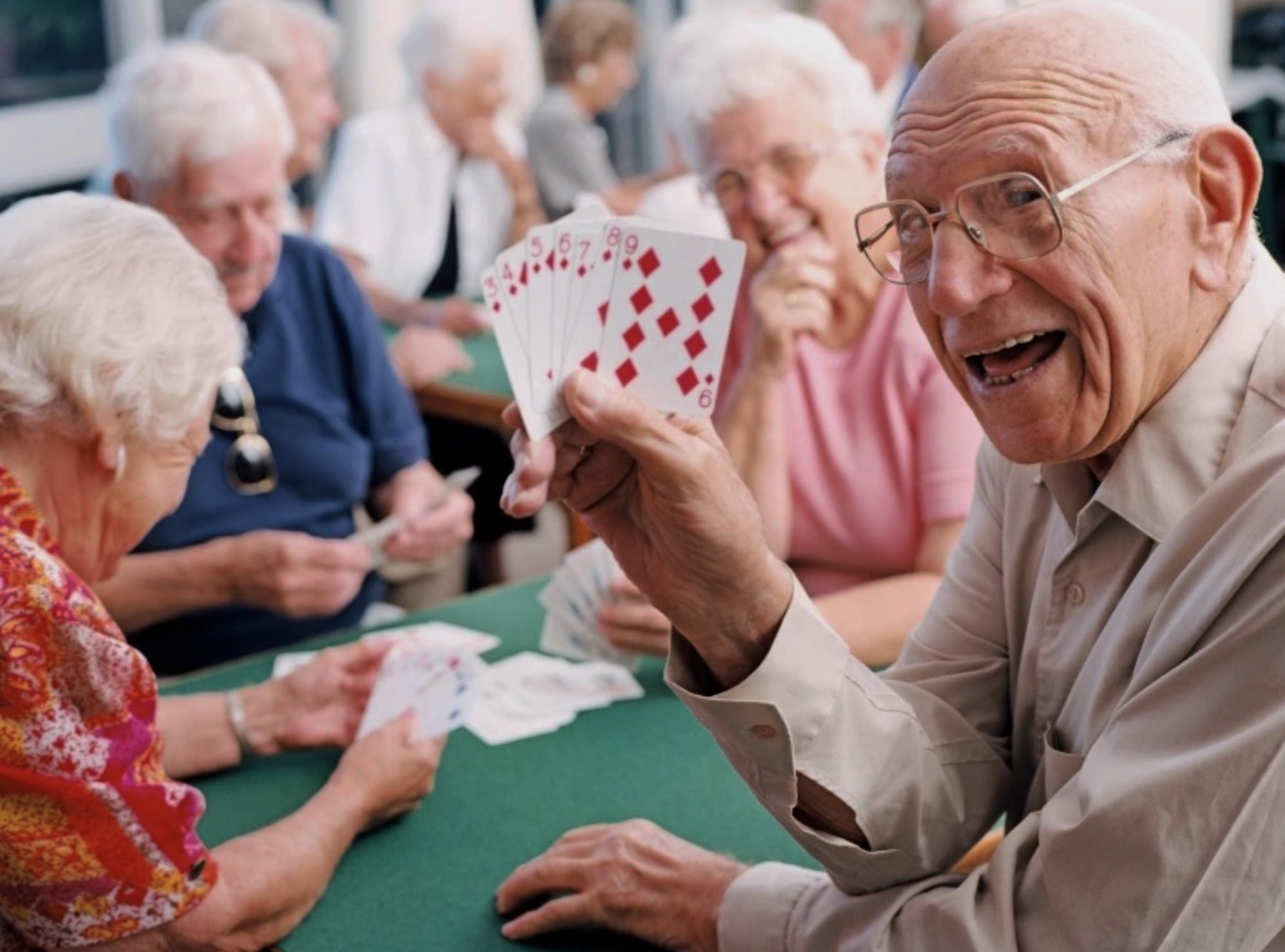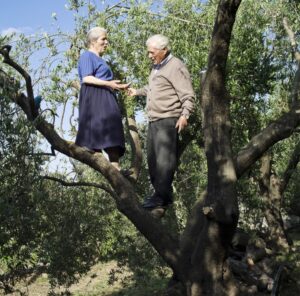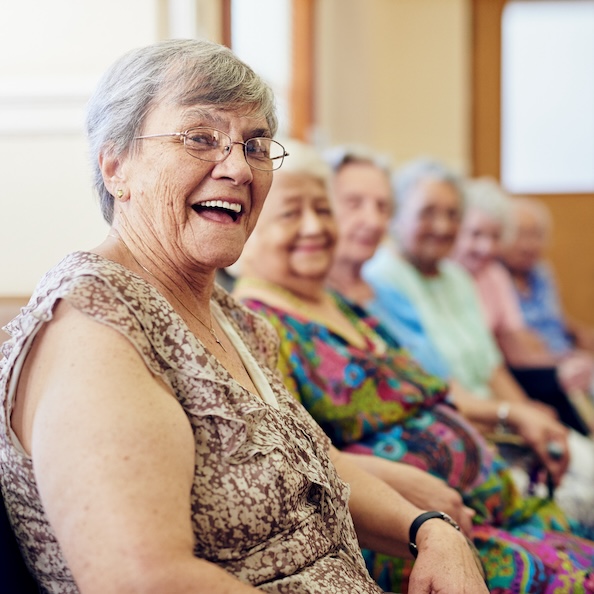The Hidden Key to Senior Longevity
“Social isolation is the public health risk of our time. The secret to living longer may be your social life”.
Susan Pinker
Psychologist, Author
What’s the secret to living to be a 100 years old and beyond? New research indicates socialization and face-to-face contact may be a big part of it. Connection is now considered to be one of the biggest drivers of health and longevity.
Susan Pinker, a developmental psychologist and best-selling author who studies loneliness says: “Real social contact is a biological need like eating, drinking or sleeping. And our bodies react to the loss of that interaction the way we react to hunger”.
The Health Risks of Loneliness
Loneliness and social isolation can have serious health consequences. Studies have linked chronic loneliness to increased risks of heart disease, metastatic cancer, stroke, and neurodegenerative diseases like dementia and Alzheimer’s.
The impact is particularly profound among the elderly; who face the additional natural challenges of aging; things like the loss of close friends and family members, geographic separation from children and grandchildren, and the life-changing transition into retirement. Among other things. So it’s a lot, no matter how you slice it.

Researchers have found that lonely adults are 25% more likely to face premature death, while having double the mortality rate compared to those with strong social connections.
A full quarter of the American adult population says they have no one to talk to. Which is ironic, considering we are more connected than ever through cell phones and social media apps, but never more disconnected and further apart. Digital interactions simply cannot replace real life, face-to-face, in-person communication.
During actual face-to-face contact, a person will release a series of neurotransmitters and hormones that foster trust, reduce stress, kill pain, and induce pleasure.
Brain scans show that in-person contact increases brain activity in areas linked with social intelligence and emotional reward in a way that digital contact does not. While social media provides more opportunities for digital interactions, these technologies are a sad substitute for real person-to-person human contact.
New evidence from the new field of social neuroscience shows that the type of social contact we have significantly effects our ability to remember, our overall health, and even how fast tumors grow.
Socialization and Life Expectancy
In the developed world, women live six-to-eight years longer than men on average. A 2015 study in the British Medical Journal Lancet found that men in wealthy countries are twice as likely to die at any age compared to women. This gap has widened over time due to factors like men engaging in riskier behaviors, being less likely to visit doctors, and working in more dangerous jobs. Additionally, men face higher rates of heart disease and certain cancers.
But there is one place in the world where men live as long as women. A “Blue Zone” where super longevity is common among both sexes. According to researchers, this singular phenomenon is found on the remote Italian island of Sardinia, sometimes called “The Pearl of the Mediterranean”.
Dubbed “Miracle Island” more than six thousand years ago by Phoenician sailors for its stunning beauty, salt flats, and encircling red corals, Sardinia was referred to even earlier by its prehistoric inhabitants as “the island of the big green.”
Today, Sardinia is home to another kind of miracle. Extreme old age. There are six times as many centenarians per capita than on the Italian mainland less than 200 miles away, and ten times as many 100 year olds as there are here in North America.
Despite living often hard lives as shepherds, farmers, and laborers in a mountainous and often unforgiving environment, Sardinians outlast their fellow citizens in Europe and North America by as many as two to three decades. Many remain active, working well into their 90s, all while living in their own homes, usually with the help of friends and family member they’ve known for ages.
So what is the secret to this Sardinian super longevity? It’s not just fresh air and sunshine, which are nice, but Blue Zone researchers say the key reason is that they are not lonely.
This is a photograph of Burna, a remote village nestled in the mountains of central Sardinia. As you can see; seclusion, space and privacy are not the city’s main architectural features. Density is. The tightly spaced houses are wedged in between narrow cobblestone streets and interwoven alleyways. The reason for the tight quarters is because like all ancient villages, Burna couldn’t have survived without its walls, its cathedral, and village square. Density and social cohesion are what protected it from the outside world. Today it means that the villagers’ lives are constantly intersecting.
A growing field of research focusing on population density has shown that social integration, the feeling of being part of a large, cohesive group, fosters immunity and resilience. For example, women with breast cancer who have active, face-to-face social networks are four-times more likely to survive their illness as women with sparser social connections.

Sardinian Elders climbing up an olive tree.
How might that work? Research led by Steve Cole at the University of California, Los Angeles shows that social contact switches on and off genes that regulate the rate of tumor growth. Fifty-year-old men with active friendships are less likely to have heart attacks than more solitary men, and people who have had a stroke are better protected from grave complications by an in-person social network than they are by medication.
There’s new evidence from another relatively new field of social neuroscience that shows how the type of social contact that we all have affects our ability to remember, our physical resilience, even how fast tumors grow. Julianne Holt-Lunstad, a senior researcher at Brigham Young University, studied more than 50,000 people for seven years. She and her colleagues looked at every aspect of their lifestyle: their diet, how much they exercised, their marital status, how often they went to the doctor, whether they smoked or drank, how many friends they had, etc. After seven years, of all the people that survived, she ranked what reduced their chances of dying the most. Here are the results of her study:
Some Surprising Longevity Secrets…
- Close Relationships, 0.64 magnitude 64%
- Social Integration, 0.63 magnitude 63%
- Quit Smoking, 0.51 Magnitude 51%
- Quit Drinking, 0.33 magnitude 33%
- flu vaccine, 0.33 magnitude 33%
- exercise, 0.32 magnitude 32%
- lean vs. overweight, 0.21 magnitude 21%
- hypertension medication, 0.13 magnitude 13%
- clean air, 0.05 magnitude 5%
This is a breakdown of Dr. Holt-Lunstad’s data. And while clean air and exercise are important, they don’t top the list.
Did you ever think getting a flu shot would protect you more than exercising? But, according to her research, the strongest predictors of a longer life are close relationships and social integration. These connections provide the support, care, and encouragement that can significantly impact health and well-being.
But it’s not just close friends and family that count, something called “social integration” is just as important. These are the casual contacts you have with the people you meet throughout the day. Brief connections with your neighbor walking down the street or a pleasant exchange with the barista pouring your coffee in the morning can make a huge difference. Taken as a whole, these brief interactions are some of the strongest predictors of how long you’ll live.
Susan Pinker’s TED Talk
What’s the secret to longevity? According to psychologist Susan Pinker, it’s not a sunny disposition or a low-fat diet. In fact, by studying communities where people live the longest, it turns out that close personal relationships may be what matters the most.
Click play to watch Susan’s full TED Talk.
It Takes A Village
From birth to death, human beings are hard-wired to connect with other human beings. Face-to-face contact matters: tight bonds of friendship and love heal us, make us whole, extend our lives, and make us happy. Looser, more casual connections also matter. Combining all these different kinds of relationships helps form a personal “village” around us, one that exerts a unique and powerful influence on our lives and our health.
At Senior Day KC, we understand the importance of social interaction, which is why it lies at the heart of our social services. Join us to experience the power of genuine human connection.
Reach out to find out more or take a tour.

Send us an email at [email protected] or call us at 660-GOOD DAY (660-466-3329) to schedule a tour.
